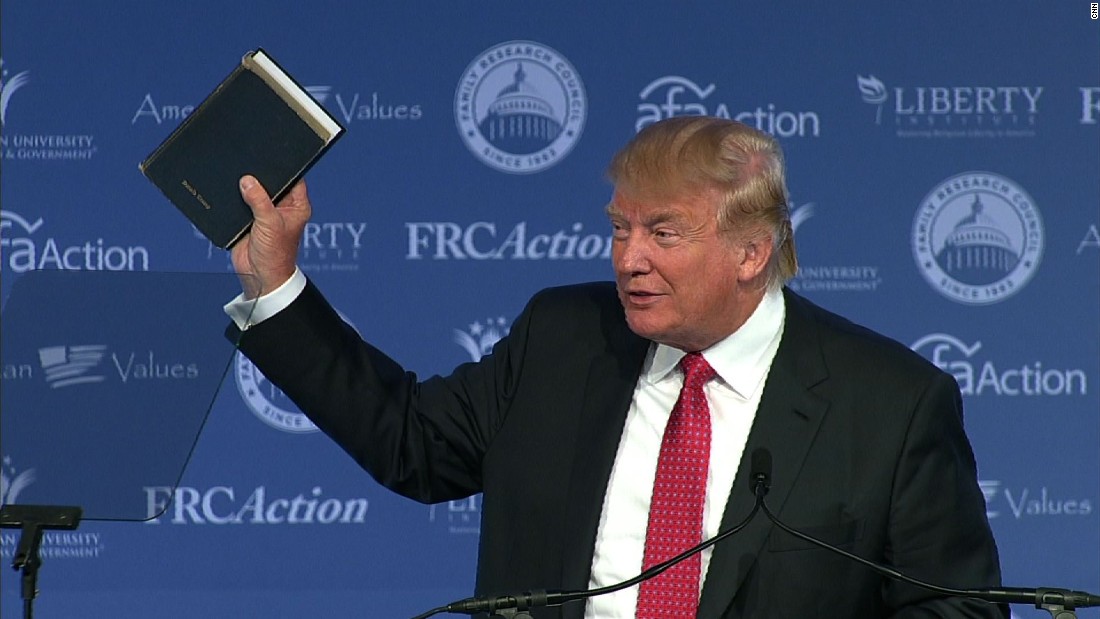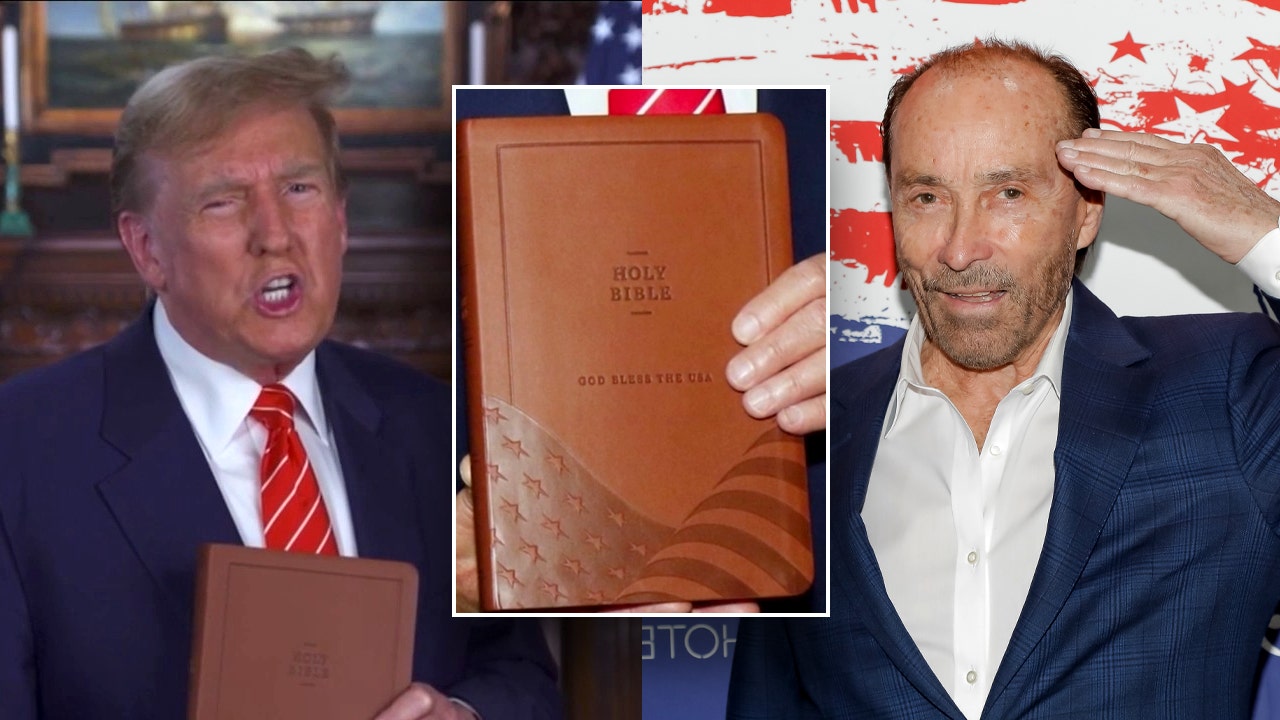Signs Trump Is Antichrist: Exploring The Theories And Debunking The Myths
The topic of whether Donald Trump could be the Antichrist has sparked intense debate among religious communities and political analysts alike. With his controversial policies, charismatic leadership style, and polarizing persona, many have questioned whether there are signs that align with biblical prophecies. This article aims to delve into the theories, analyze the evidence, and provide a balanced perspective on this sensitive subject.
As one of the most polarizing figures in modern history, Donald Trump continues to be a subject of fascination and controversy. For some, he is a political savior; for others, a symbol of division. The idea that Trump might fit the profile of the Antichrist is not new, but it has gained traction in certain circles, especially among those who study biblical prophecies and apocalyptic literature.
This article will explore the various theories surrounding this claim, examining the historical context, biblical references, and modern interpretations. By the end of this article, readers will have a clearer understanding of the arguments and counterarguments, allowing them to form their own informed opinions.
Read also:Viral Desi Mms The Phenomenon Thats Taking The World By Storm
Table of Contents
- Biography of Donald Trump
- Understanding the Biblical Antichrist
- Signs Trump is Antichrist: Theories and Evidence
- Political Impact and Influence
- Historical Context of the Antichrist
- Modern Interpretations of the Antichrist
- Debunking the Myths
- Expert Perspectives on the Theory
- Conclusion: What Does It All Mean?
- Call to Action
Biography of Donald Trump
Before diving into the theories, it is essential to understand who Donald Trump is. Below is a brief overview of his life and career:
| Full Name | Donald John Trump |
|---|---|
| Date of Birth | June 14, 1946 |
| Place of Birth | Queens, New York, USA |
| Profession | Businessman, Television Personality, Politician |
| Political Affiliation | Republican Party |
| Spouse | Melania Trump |
Donald Trump was born on June 14, 1946, in Queens, New York. He rose to prominence as a real estate developer and television personality before entering politics. In 2016, he became the 45th President of the United States, serving one term until January 2021. His presidency was marked by controversy, with supporters praising his economic policies and detractors criticizing his divisive rhetoric.
Understanding the Biblical Antichrist
The concept of the Antichrist originates from biblical texts, particularly the New Testament. In 1 John 2:18, it is written, "Children, it is the last hour; and just as you heard that antichrist is coming, even now many antichrists have appeared; from this we know that it is the last hour." This passage highlights the idea that the Antichrist represents a false messiah who will deceive many.
Key Characteristics of the Antichrist
- Deception: The Antichrist is often described as a master of deception, using charm and charisma to manipulate others.
- Power: He is expected to wield significant political and economic influence, often described as a global leader.
- Opposition to God: The Antichrist is believed to oppose divine authority and promote idolatry.
These characteristics form the basis for many theories that attempt to identify individuals who might fit the profile.
Signs Trump is Antichrist: Theories and Evidence
Several theories have emerged suggesting that Donald Trump exhibits traits associated with the Antichrist. Below are some of the most commonly cited points:
1. Charismatic Leadership
Trump's ability to captivate audiences and inspire loyalty among his supporters is often compared to the charismatic nature of the Antichrist. His rallies and public appearances draw large crowds, demonstrating his magnetic presence.
Read also:Tamilblasters Kannada Your Ultimate Source For Entertainment
2. Global Influence
As a former president of the United States, Trump wielded significant global influence. His policies, such as the "America First" agenda, have had far-reaching consequences, impacting international relations and economic stability.
3. Controversial Policies
Some critics argue that Trump's policies, particularly those related to religious freedom and social issues, align with the Antichrist's opposition to divine authority. For example, his stance on immigration and environmental regulations has been met with strong opposition from religious groups.
Political Impact and Influence
Trump's presidency had a profound impact on American politics and global affairs. His administration implemented policies that polarized the nation, creating deep divisions between supporters and opponents. While some view his actions as necessary reforms, others see them as signs of a more sinister agenda.
Divisive Rhetoric
One of the most notable aspects of Trump's presidency was his use of divisive rhetoric. He often employed language that inflamed tensions and exacerbated existing social issues. This approach has been interpreted by some as a deliberate attempt to sow discord, a trait often associated with the Antichrist.
Historical Context of the Antichrist
To fully understand the theories surrounding Trump and the Antichrist, it is important to examine the historical context. Throughout history, various figures have been labeled as potential Antichrists, including Roman emperors, medieval popes, and modern leaders. These accusations often reflect the fears and anxieties of their respective eras.
Historical Precedents
- Nero: The Roman emperor Nero was one of the earliest figures accused of being the Antichrist due to his persecution of Christians.
- Adolf Hitler: During World War II, many compared Hitler to the Antichrist because of his genocidal policies and megalomaniacal ambitions.
These historical precedents demonstrate how the concept of the Antichrist has evolved over time, adapting to the unique challenges and fears of each era.
Modern Interpretations of the Antichrist
In contemporary times, the Antichrist is often interpreted as a symbol of authoritarianism and oppression. This perspective aligns with concerns about the rise of populist leaders and the erosion of democratic institutions. Trump's presidency, with its emphasis on nationalism and authoritarian tendencies, fits into this narrative for some observers.
Globalization and Technology
Modern interpretations also incorporate the role of globalization and technology in shaping the Antichrist's influence. The spread of misinformation and the manipulation of public opinion through digital platforms have raised questions about the nature of truth and authority in the 21st century.
Debunking the Myths
While the theories surrounding Trump and the Antichrist are intriguing, it is important to approach them with a critical mindset. Many of the claims lack substantial evidence and rely on subjective interpretations of biblical texts. Below are some common myths and their debunking:
Myth: Trump's Wealth Makes Him the Antichrist
Some argue that Trump's wealth and materialism align with the Antichrist's pursuit of power and wealth. However, this interpretation ignores the complexity of biblical teachings, which emphasize moral character over financial status.
Myth: Trump's Policies Are Directly Linked to Biblical Prophecies
While some of Trump's policies may raise concerns among religious groups, linking them directly to biblical prophecies requires a selective reading of scripture. A more nuanced understanding of these texts reveals the importance of context and interpretation.
Expert Perspectives on the Theory
Scholars and theologians offer valuable insights into the debate surrounding Trump and the Antichrist. Their perspectives provide a balanced view that considers both the historical context and modern interpretations.
Dr. James Dunn's Analysis
Dr. James Dunn, a renowned biblical scholar, emphasizes the need for caution when applying biblical prophecies to contemporary figures. He argues that the Antichrist is more of a metaphorical concept than a literal individual, representing the forces of evil and deception in the world.
Conclusion: What Does It All Mean?
In conclusion, the theory that Donald Trump is the Antichrist is a complex and multifaceted issue. While some aspects of his personality and policies align with traditional interpretations of the Antichrist, it is crucial to approach these claims with a critical and informed perspective. By examining the historical context, modern interpretations, and expert opinions, we can gain a deeper understanding of the subject.
Ultimately, the debate surrounding Trump and the Antichrist reflects broader concerns about the state of global politics and the role of religion in public life. As we navigate these challenges, it is important to engage in respectful dialogue and seek common ground.
Call to Action
We invite readers to share their thoughts and opinions in the comments section below. Do you believe there are signs Trump is Antichrist, or do you think these theories are unfounded? Let us know your perspective, and feel free to explore other articles on our website for more insightful content.

